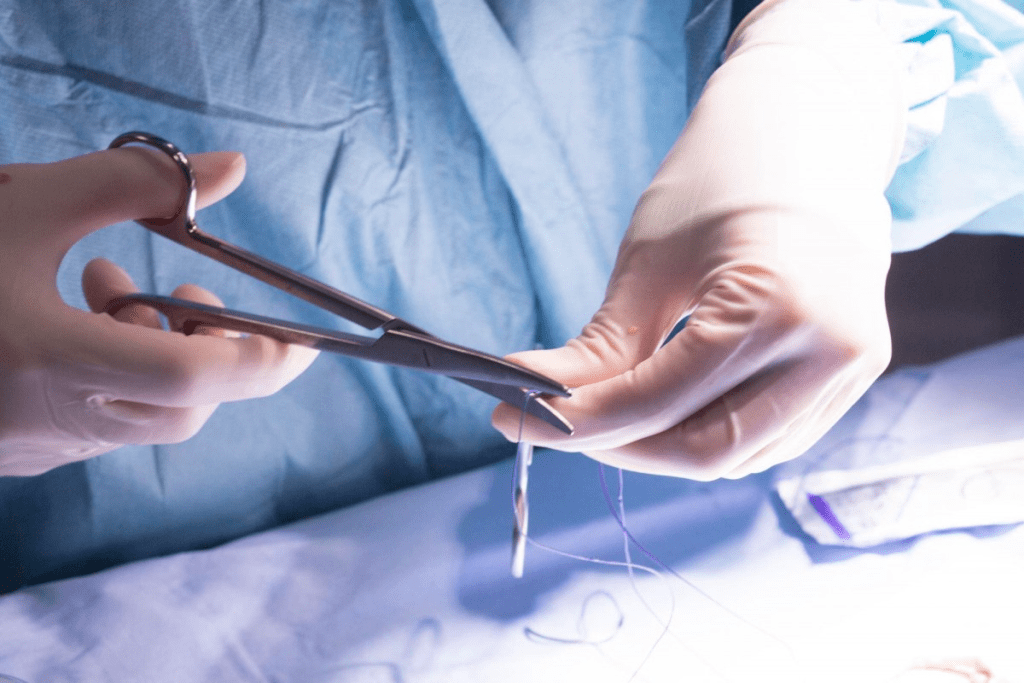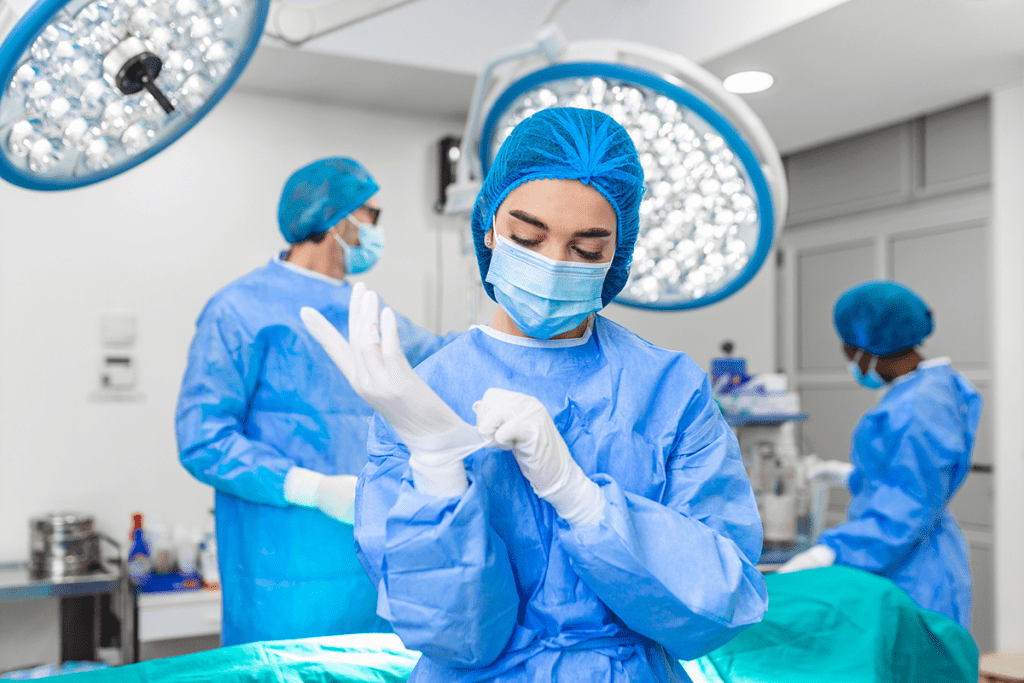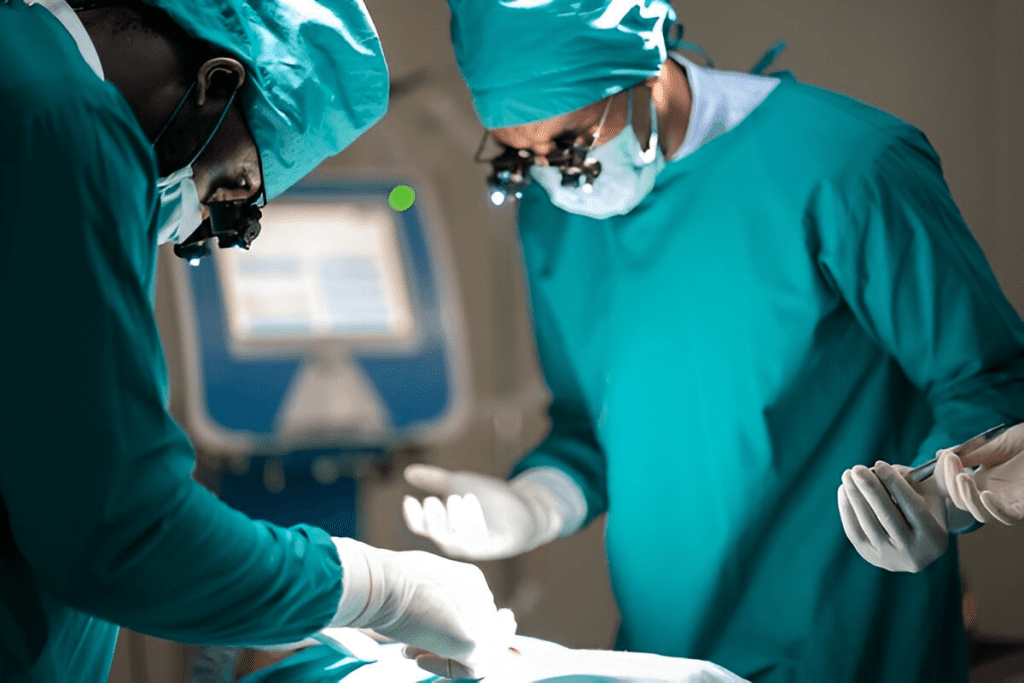Last Updated on October 31, 2025 by

After urethral stricture surgery, it’s important to follow a good aftercare plan. This includes regular check-ups, keeping clean, managing pain, and following doctor’s orders. These steps help avoid any problems.
Studies show that urethroplasty surgery works well, with success rates between 84% and 92%. We help our patients understand what they need to do to get the best results. This way, they can recover well.
Urethroplasty is a surgery to fix the urethra. It’s needed for those with urethral stricture, a narrowing of the urethra. This can really affect someone’s life. Knowing what to expect from surgery is key.
There are many ways to fix urethral stricture, each with its own benefits. Anastomotic urethroplasty removes the narrow part and joins the healthy ends. It’s good for shorter strictures.
Substitution urethroplasty uses a graft or flap for longer strictures. The right surgery depends on the stricture’s length, location, and the patient’s health. We help choose the best surgery for each patient.
Today’s urethroplasty methods work well, with success rates over 90%. Success depends on the stricture’s complexity and the surgeon’s skill. We use the latest methods to get the best results for our patients.
Recovery from urethroplasty takes a few weeks. Patients might feel pain and swelling at first. Following the doctor’s instructions is important for healing.
We give detailed advice on wound care, what activities to avoid, and when to come back for check-ups. Knowing what to expect helps ease worries and prepares patients for their journey.

After urethroplasty surgery, quick care is key for recovery and results. Good care in this time can lower risks and make patients happier.
How long you stay in the hospital after urethroplasty surgery depends on the surgery and your health. Usually, you’re watched for a few days to catch any problems early. Doctors manage your pain and look for any signs of trouble.
Managing pain is a big part of caring for you after urethroplasty surgery. We use different ways to control pain, based on what you need. Good pain management makes you more comfortable and helps you heal faster.
A study on pain shows, “controlling pain well is key for less stress and better healing after surgery.” We mix medicines and other methods to help you feel better.
Fast Track Surgery (FTS) makes recovery better after urethroplasty surgery. It uses a team approach to care, cutting down hospital time and pain by up to 70%. FTS helps you get back to your life sooner.
We aim to give the best care, using new surgery and care methods, like FTS. This way, our patients get the best results.
Proper home care after urethral stricture surgery is key for healing and avoiding infections. We’ll guide you through the recovery, highlighting the importance of home care.
Keeping the surgical site clean and dry is vital. Wash the area with mild soap and water, then pat it dry. Stay away from harsh or scented soaps that might irritate the skin.
Hygiene practices are critical in preventing infections. Stick to a balanced hygiene routine, including bathing or showering as advised. Don’t submerge the wound in water until it’s fully healed.
After surgery, avoid activities that could strain the area. Don’t lift heavy, bend, or exercise too much for the first few weeks. Gradually return to normal activities as your healthcare provider advises.
Eating a balanced diet rich in nutrients helps with healing. Stay hydrated by drinking plenty of fluids. A diet high in fiber can prevent constipation, which is important after surgery.
Include easy-to-digest foods like fruits, vegetables, and whole grains. Avoid foods that could cause discomfort or digestive issues.
Following your medication regimen is critical for pain management and preventing infection. It’s important to take your medications as directed by your healthcare provider.
By following these home care guidelines, you can significantly contribute to a successful recovery after urethral stricture surgery. If you have any questions or concerns, don’t hesitate to reach out to your healthcare provider.

It’s key to manage complications after urethral stricture surgery for a good recovery. Urethroplasty is a top treatment, but knowing possible issues and how to avoid them is important.
Urethroplasty can lead to hematuria (blood in urine), infection, and erectile dysfunction. Hematuria often shows up right after surgery but usually goes away. Infection is a risk with surgery, so antibiotics are often given to lower this risk.
Erectile dysfunction is a possible issue, though not common. The risk depends on the stricture’s location and length, and the surgery method.
It’s vital for patients to know when to seek medical help. Look out for severe pain that doesn’t get better, heavy bleeding, fever over 101.5 °F (38.6 °C), and trouble urinating.
Preventing issues involves care before, during, and after surgery. Patients must follow their surgeon’s advice, including any tests before surgery and care after.
Keeping clean, taking all meds, and going to follow-up visits are also key to avoiding problems.
Follow-up visits are essential for recovery. They let doctors check on healing, remove catheters or drains, and tackle any issues early.
Going to these appointments helps ensure the best results after urethroplasty.
Proper aftercare is key for a smooth recovery after urethral stricture surgery. We stress the need to follow the guidelines in this article. This helps avoid complications and ensures a good outcome.
Following the aftercare protocols helps patients get the best results. Our team is dedicated to top-notch healthcare. We offer full support and guidance to international patients.
Recovery needs proper wound care, following medication, and regular check-ups. We urge patients to stay involved in their recovery. This way, they can achieve the best results.
With the right care and support, patients can beat the challenges of urethral stricture surgery. Our aim is to equip patients with the tools they need. This way, they can confidently navigate their recovery journey.
Urethroplasty surgery fixes a damaged or narrowed urethra. It includes different procedures like anastomotic and substitution urethroplasty. These aim to make the urethra work right again.
Recovery usually takes weeks. The time needed can vary based on your health and the surgery’s complexity.
Paths like FTS help a lot. They cut down pain, reduce complications, and speed up getting back to normal.
Managing pain is key after surgery. Stick to the pain meds your doctor gives you to handle pain well.
Issues like bleeding, infection, and erectile dysfunction can happen. To avoid them, take good care of your wound, follow activity limits, and go to all your follow-ups.
Look out for severe pain, heavy bleeding, trouble peeing, and infection signs like fever. If you see these, call your doctor right away.
Sometimes, a damaged urethra might not heal on its own. Surgery is often needed to fix it.
You’ll need to avoid heavy lifting and bending. How long depends on your healing and the doctor’s advice.
Eating well and drinking enough water helps healing. Follow what your doctor says about diet and fluids.
Follow-ups are important. They help check healing, spot problems early, and adjust treatment if needed.
Yes, urethroplasty is safe and works well. New surgical methods have made it even better for treating urethral stricture.
Subscribe to our e-newsletter to stay informed about the latest innovations in the world of health and exclusive offers!